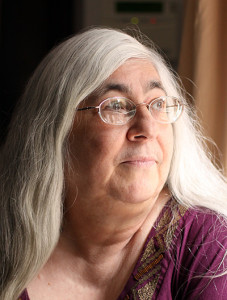Poems by
Helen Losse
Poetry book, 90 pages, $14 cover price
($10 if ordered from the MSR Online Bookstore)
ISBN: 978-1-59948-464-8
Release date: April 29, 2014

Helen Losse
Helen Losse has written two other poetry books, Seriously Dangerous and Better With Friends, and three chapbooks. Her poems have been nominated twice for a Pushcart Prize and three times for a Best of the Net award, one of which was a finalist, and anthologized in Literary Trails of the North Carolina Piedmont. She was the Poetry Editor for The Dead Mule School of Southern Literature for six years and is now its Poetry Editor Emeritus.
In poetry, memory and grief often become entangled. In Facing a Lonely West, Helen Losse deftly navigates both of these rivers as they converge and head toward an unknown sea. Even as she notes, “I am not so sure/I want to be happy,” she finds solace in her faith and in the power of her childhood recollections. Armed with this protection, she can “walk toward/an opening in the sky.” —Tim Peeler, author of Checking Out
Helen Losse keeps her pulse on the “back story” in poem after poem in Facing a Lonely West. That yearning to say the truth warns and warms the reader, the hobo, and especially the bustling person who wants to get over grief and move toward faith and forward to a real survival. —Shelby Stephenson, author of Family Matters: Homage to July, the Slave Girl
Losse pulls the reader into her heart and causes him/her to experience life and loss, an awakening of sorts to both while delightfully surprising the reader with satisfying and thought-provoking metaphors and images. — Mike Thomas, professor of languages and Great Texts, Baylor University
In Facing a Lonely West, Helen Losse contrasts modern achievements and rituals against the persistent truths of grief and loss, and shows how the slightest things—the orientation of a chair, for example—can save us. — Addy Robinson McCulloch, poet, essayist, editor
Facing a Lonely West
–based on “Final Show” by Bud Caywood
We three sunflowers look east
toward today’s faded sun,
where sky is a waxy wash, colored
by nothing, not even gray. “Perhaps
snow will fall early this year,” we
think. All summer we thrived,
stood straight, our flower-heads
matching the exact color
of the noonday sun. And we promise,
our offspring will be just as round,
just as yellow next year. We sunflowers
are actually friendly and—good day or bad—
stick to our word. But in October,
as days grow cooler, our necks feel tired,
strained from leaning from this sandy hill
into cooler wind, paler light. Today we have
taken the time to smile a final smile at you,
yet like our brother-flower, who already
turned his shriveling head, we sisters soon
face a lonely west. A lifetime for a sunflower
is only one season, so our autumnal motions
are those of an old age. Remembering this,
when you see us wave good-bye, will you
pause—if only for a moment—to wave back?
Train-Wreck Site
At noon, we picnic
in the cold. Clouds roll in
on the park’s western edge.
We view the spot
where a train twisted its way
down. Old 603
fell to a valley, grave.
See that girder bridge
off to the right. That’s
where to look.
That awful night
she burned her way
down to that very spot,
as metal and blood rained.
What’s left is rust—
greened over all summer
with kudzu, heavy frost
come winter, clouds
black as the steam
from that falling engine,
hail stones
like shards of glass.
Blizzard of Want
A woman sits on a rocky ledge,
where soft dirt clings to the roots
of a few scraggly trees,
mainly blue cedars.
The woman ignores
the beauty of Spring River,
the warmth of an Oklahoma sun.
She picks at a thread
on the sleeve of her jacket,
scratches a purple seed,
peels the layer of pink from
the layer of blue.
Her hands follow no direction,
her mind no longer a plan-maker.
She is all alone
on the bank of the river,
where she shivers and bleeds
useless, barren blood.